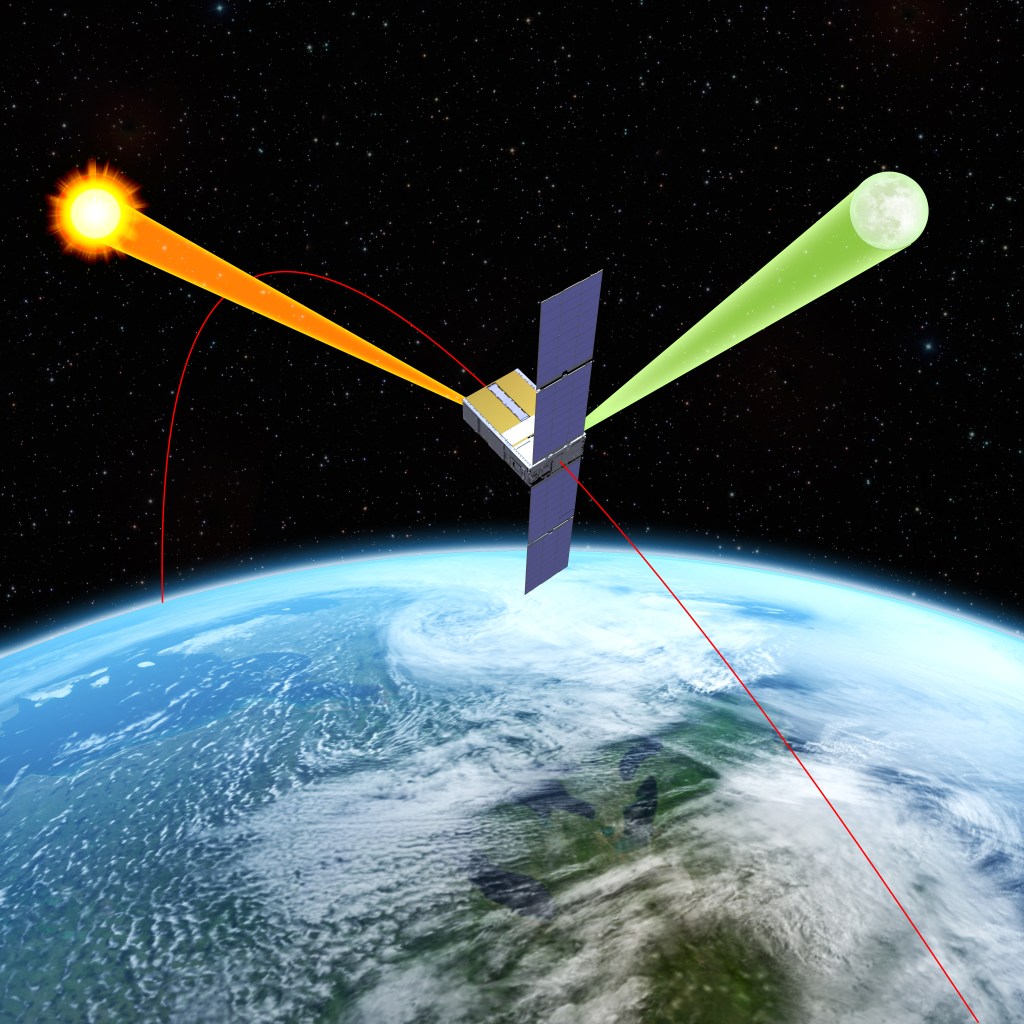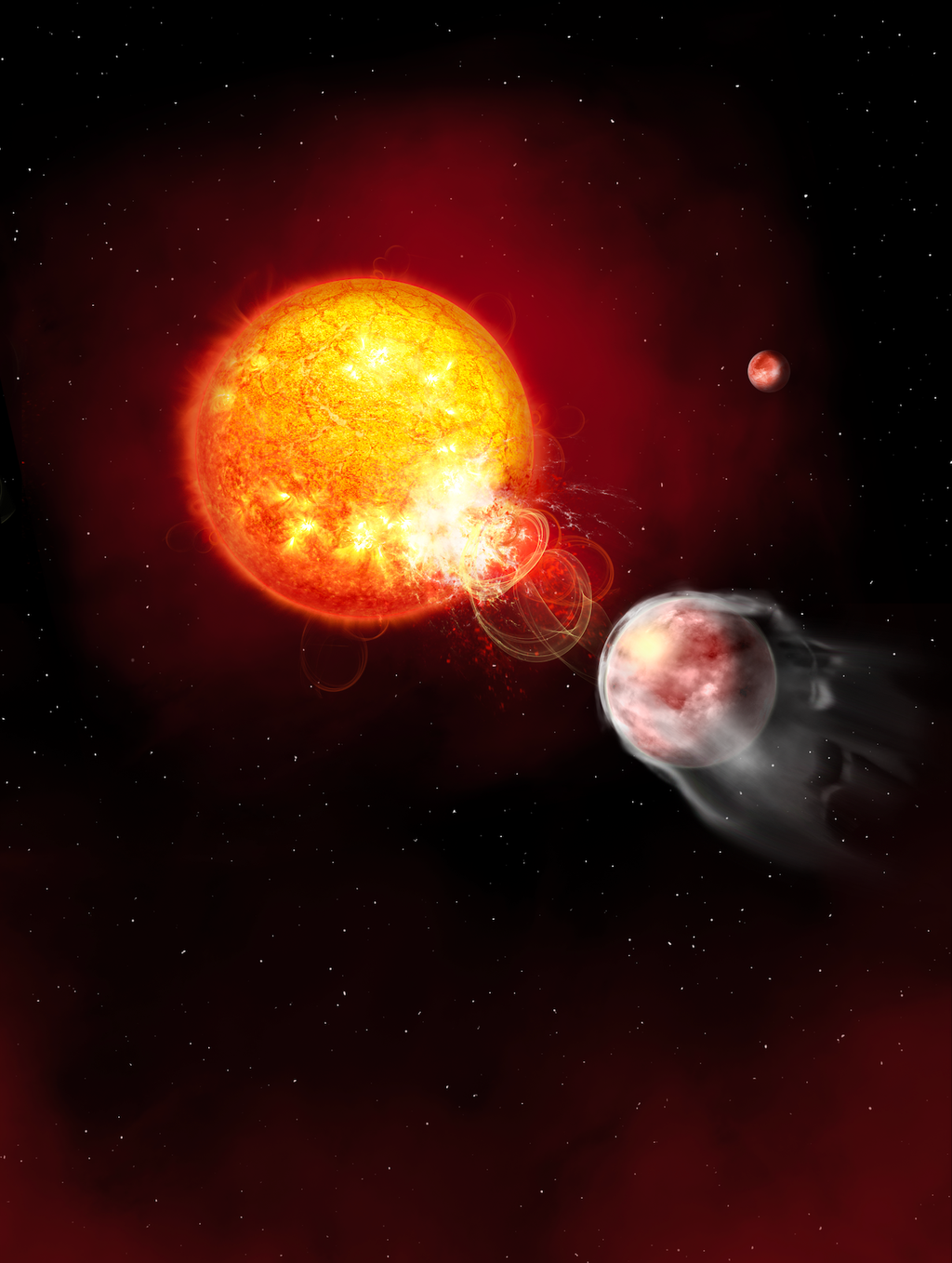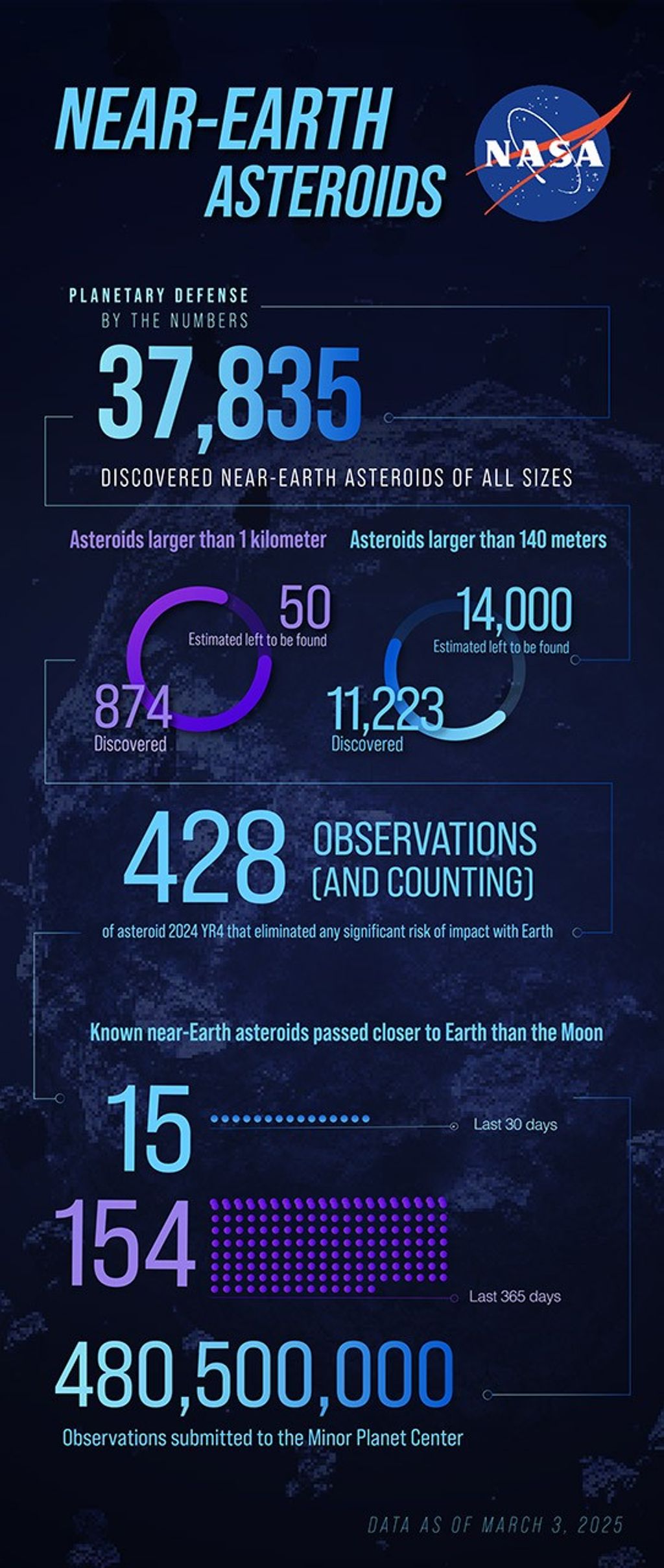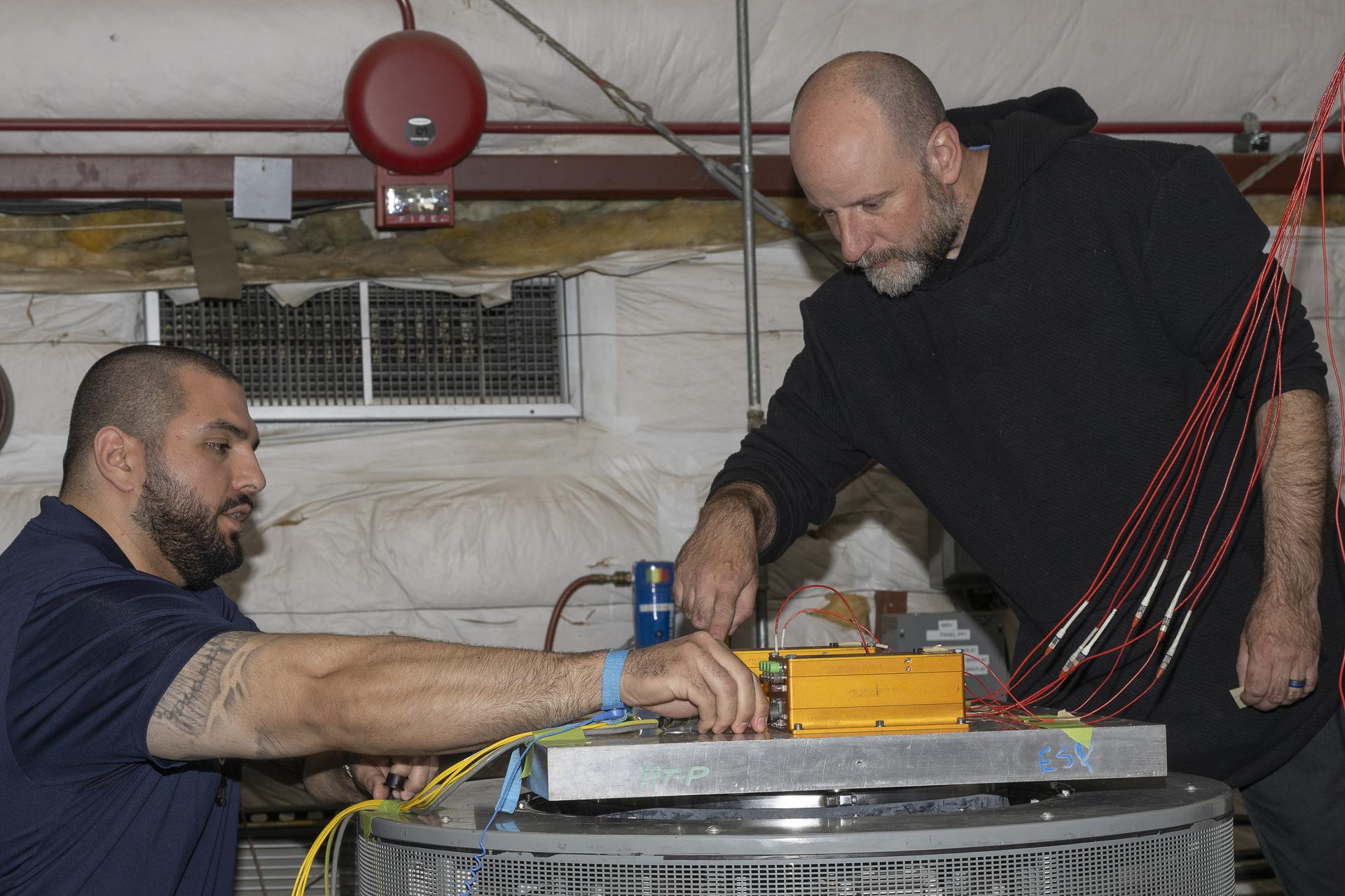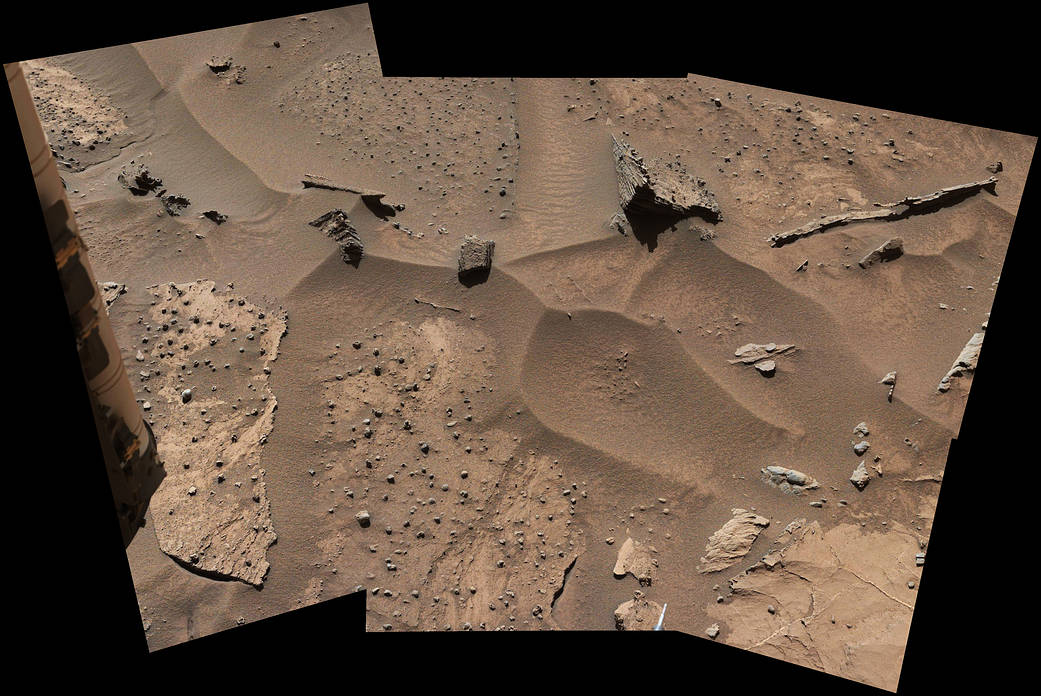Patches of Martian sandstone visible in the lower-left and upper portions of this view from the Mast Camera (Mastcam) of NASA’s Curiosity Mars rover have a knobbly texture due to nodules apparently more resistant to erosion than the host rock in which some are still embedded.
The site is at a zone on lower Mount Sharp where mudstone of the Murray geological unit — visible in the lower right corner here — is exposed adjacent to the overlying Stimson unit. The exact contact between Murray and Stimson here is covered with windblown sand. Most other portions of the Stimson unit investigated by Curiosity have not shown erosion-resistant nodules. Curiosity encountered this unusually textured exposure on the rover’s approach to the “Naukluft Plateau.” The Naukluft Plateau location is indicated on a map at http://photojournal.jpl.nasa.gov/catalog/PIA20166 showing the rover’s traverse path since its 2012 landing.
This view is presented with a color adjustment that approximates white balancing, to resemble how the scene would appear under daytime lighting conditions on Earth. It combines six images taken with the left-eye camera of Mastcam on March 9, 2016, during the 1,276th Martian day, or sol, of Curiosity’s work on Mars. About midway up the scene, the area that is shown spans about 10 feet (3 meters) across. Figure A includes a scale bar of 30 centimeters (12 inches). The images were taken to show the work area within reach of the rover’s arm. Targets in the work area were subsequently examined with the Mars Hand Lens Imager (MAHLI) on the end of the arm. Resulting close-ups from MAHLI — at http://photojournal.jpl.nasa.gov/catalog/PIA20323 and http://photojournal.jpl.nasa.gov/catalog/PIA20324 — show how the nodules are made up of grains of sand cemented together.
Malin Space Science Systems, San Diego, built and operates the rover’s Mastcam. NASA’s Jet Propulsion Laboratory, a division of the California Institute of Technology, Pasadena, manages the Mars Science Laboratory Project for NASA’s Science Mission Directorate, Washington. JPL designed and built the project’s Curiosity rover. For more information about Curiosity, visit https://www.nasa.gov/msl and http://mars.jpl.nasa.gov/msl.
Credit: NASA/JPL-Caltech/MSSS









